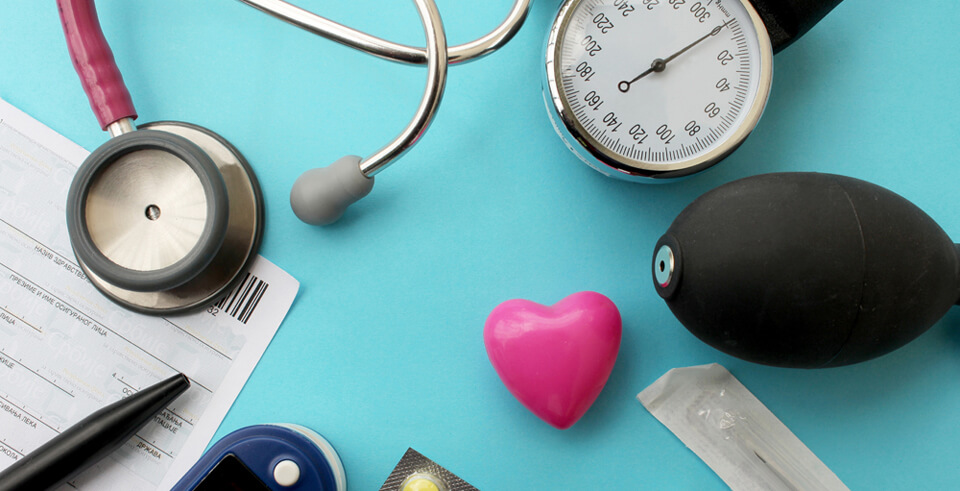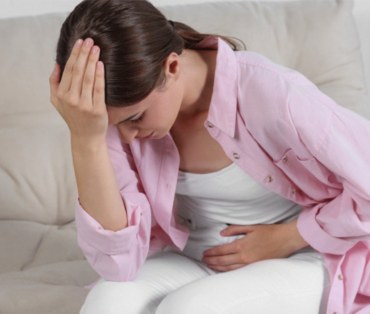Important Health Checks for Women
You work out regularly at Curves. Check. You’re doing what you can to lose or maintain your weight. Check. You engage in a healthy eating plan. Another check. Of course, these activities are all vital to good health. But in order to be in tip top shape, there are several health checks you should get, too. Here are some of the most important health checks for women:1
Physical exam
We take our kids and grandkids for regular health checks, but do we do the same for ourselves? We should! See your primary care physician every 1 to 2 years for a physical exam. Here, your provider will do the following:
- Check your blood pressure
- Measure your height, weight, and body mass index (BMI)
- Ask whether you follow a healthy diet and workout plan
- Update any vaccinations
- Talk to you about depression, alcohol and tobacco use
- Discuss safety issues, such as wearing a seat belt and installing smoke detectors in your home1
Mammogram
For most women, the recommendation is to start having mammograms at age 40. Between the ages of 20 and 40, your health care provider may also do a clinical breast exam. If your mother or sister had breast cancer at a young age, talk to your health care provider about getting yearly mammograms starting earlier than the age when your youngest family member was diagnosed. If you have other risk factors for breast cancer, your health care provider may also recommend a breast ultrasound or MRI. You may also choose to do a monthly breast self-exam, although the jury isn’t out as to whether they are effective. Talk to your health care provider about what’s best for you. If you notice any changes in your breasts (whether or not you do breast self-exams), contact your provider right away.2
Pelvic exam and Pap smear
Starting at age 21, all women should have a pelvic exam and pap smear every three years to screen for cervical cancer. Over age 30, you will also most likely get an HPV test. If you are over age 30 and your Pap smear and HPV test are normal, you will only need a Pap smear every five years. Women who have had a total hysterectomy (uterus and cervix removed) who have not been diagnosed with cervical cancer may be able to stop Pap smears. Women who are sexually active should also be tested for chlamydia and gonorrhea up until age 25. After 25, they should only be screened for these sexually transmitted infections if they are at high risk.1
Bone mineral density testing
If you are over age 50 and have suffered a fracture, you should have a bone density test (DEXA scan). If you are under age 65 and have any risk factors for osteoporosis, you should also be screened. Risk factors include low dietary intake of vitamin D; menopause; family history of osteoporosis; high alcohol consumption; low body weight; smoking; or history of an eating disorder.2
Cholesterol
All women should have their cholesterol checked starting between age 20 and 45. If you have a personal or family history of high cholesterol, you should start on the younger end of this range. If your cholesterol levels are normal, you should repeat the test every five years. If you have heart disease, diabetes, or other health conditions, you may need to get your cholesterol tested more often. Same holds true if you experience a shift in your lifestyle, such as weight loss or gain, or a change to your diet plan.1
Blood pressure
You should have your blood pressure checked at least once every two years. If it’s elevated (the systolic pressure is between 120 and 139 mm Hg, or the diastolic number is between 80 and 89 Hg), you should have your blood pressure checked every year. If you have heart disease, diabetes, kidney problems, or other medical conditions, you may need to be screened more often. Talk to your health care provider about your individual screening needs. If the systolic number is greater than 140 or the bottom number is greater than 90, see your health care provider to discuss treatment.1
Diabetes
All women over age 44 should have their blood sugar levels checked every three years. If you meet certain criteria, your health care provider will start checking your blood sugar level at a younger age. These criteria include a blood pressure reading of 140/80 mm Hg or higher; a BMI greater than 25 coupled with other risk factors for diabetes; or risk factors such as a history of heart disease or a family member with diabetes.2
Colon cancer
All women should get screened for colon cancer starting at age 50. If you’re under age 50, talk to your health care provider about whether you should be screened. He or she may recommend screening if you have a family history of colon cancer, colon polyps, or inflammatory bowel disease. Screening tests available for colon cancer include the following:
- Colonoscopy every 10 years
- Fecal occult blood test every year
- Fecal immunochemical test every year
- Stool DNA test every three years
- Flexible sigmoidoscopy every five years
- Double contrast barium enema every five years
- CT colonography (virtual colonoscopy) every five years 2
Don’t forget about the other checks
The tests we discussed may be the most critical, but there are additional tests every woman should be proactive about in order to maintain good health and quality of life. These include:
- Dental exam: All women should visit the dentist for a checkup and professional cleaning one to two times a year.
- Eye exam: If you have vision problems, see an eye doctor for a vision exam at least every two years. If you have diabetes, you should have an eye exam yearly.
- Skin exam: Depending on your risk for skin cancer, your health care provider may recommend yearly skin checks. You’re at increased risk for skin cancer if you’ve had skin cancer in the past, you have a close relative with the disease, or you have a weakened immune system.
- Lung cancer screening: The United States Preventive Services Task Force recommends annual lung cancer screening with low-dose computer tomography in adults age 55 to 80 who have a 30 pack-year smoking history or who currently smoke or have quit within the past 15 years.2
Curves offers a variety of exercise classes for women — high-intensity women’s boxing classes and cardio classes, medium to low-intensity women’s fitness classes, and low-intensity women’s balance classes. Each class is designed to to give you an effective total body workout in just 30 minutes!
Sources







